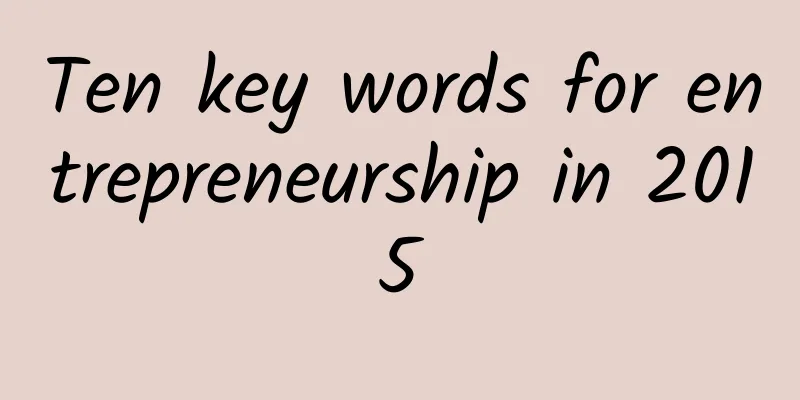National Vascular Health Day丨Has the "source" of cerebral infarction been found? It may save millions of lives!

|
Expert of this article: Chen Sijiao, Chief Physician of Geriatric Cardiology, First Affiliated Hospital of China Medical University, Professor May 18th of each year is the National Vascular Health Day. This date is chosen because the critical value of abnormal total cholesterol in normal people's blood is 5.18 mmol/L. It is now clear that the important pathogenic component of total cholesterol is low-density lipoprotein cholesterol (LDL-C), also known as bad cholesterol, which is the "behind-the-scenes pusher" of cardiovascular and cerebrovascular diseases such as coronary heart disease, stroke, and myocardial infarction. Copyright image, no permission to reprint Regarding stroke, according to WHO statistics, 1 in 6 people in the world suffers from stroke, 1 person dies from stroke every 6 seconds, and 1 person becomes permanently disabled from stroke every 6 seconds. Photo courtesy of the author The risk of stroke in adults in my country is as high as 39.3%. The incidence and mortality rates of stroke in China are already the highest in the world; stroke is currently the leading cause of disability and death in my country. What is a stroke? Stroke is an acute cerebrovascular disease caused by sudden rupture of brain blood vessels or blockage of blood vessels, which prevents blood from flowing into the brain. The ischemic part of the brain tissue dies and the controlled body functions become abnormal. What people call "stroke" is cerebral infarction. Because it occurs as suddenly as a gust of wind and blows people down in an instant, traditional medicine named it cerebral stroke. Stroke can be divided into two categories: Cerebral infarction, also known as ischemic stroke, refers to a syndrome of cerebral blood circulation disorders caused by various reasons, leading to ischemic and hypoxic necrosis of local brain tissue, and corresponding neurological deficits. Cerebral infarction is the most common type of stroke, sometimes called cerebral ischemia or cerebral thrombosis. Which group of people are prone to cerebral infarction? 90% of strokes (including cerebral infarction) are related to the following unhealthy lifestyles and disease factors (as shown below). These people are at high risk and are prone to cerebral infarction: What are the signs of acute cerebral infarction? Precursors of cerebral infarction (early signals): Cerebral infarction usually has an acute onset, with sudden numbness of the face or limbs or loss of motor ability, hemiplegia, visual changes, slurred speech, aphasia and limb twitching. In severe cases, the patient may faint or even suffer from impaired consciousness. Call 120 immediately when the disease occurs. Identify the precursors of cerebral infarction and stroke as early as possible to minimize the damage and buy time for doctors to perform anti-thrombotic, thrombolytic or thrombectomy. What should I do if I suddenly have a cerebral infarction? Remember the "120" method and grasp the golden time for treatment, which can save lives at critical moments: Has the “source” of cerebral infarction been found? A large number of international and domestic scientific studies have shown that hypertension and atrial fibrillation are the two main risk factors for cerebral infarction! The "source" of cerebral infarction has been found! hypertension Photo courtesy of the author Photo courtesy of the author Atrial fibrillation Photo courtesy of the author Atrial fibrillation has the highest probability of embolism in cerebral blood vessels and is the most harmful, which can lead to stroke or even sudden death. The risk of ischemic stroke in patients with atrial fibrillation increases fivefold, and 30% of strokes can be attributed to atrial fibrillation. Oral anticoagulant therapy can reduce the risk of stroke in patients with atrial fibrillation by at least 60%. Therefore, oral anticoagulant therapy is recommended as a primary and secondary prevention measure for stroke in patients with low- to moderate-risk atrial fibrillation. How to treat cerebral infarction? The golden time for rescuing acute cerebral infarction is 3 to 6 hours. For every minute of delay, 1.9 million brain cells will die. However, the latest research shows that the golden time for rescuing acute cerebral infarction has been extended to within 24 hours after the onset of the disease. Of course, the sooner the better, and you cannot give up after a certain time. Within 24 hours of onset, dual antiplatelet drugs (such as aspirin and clopidogrel) should be started and maintained for 3 weeks, followed by long-term oral administration of single antiplatelet drugs (such as aspirin or clopidogrel). According to the 2021 stroke guidelines, patients with ischemic stroke should receive high-intensity lipid-lowering treatment as soon as possible during the acute phase: for high-risk patients, LDL-C should be below 1.8 mmol/L; for extremely high-risk patients, LDL-C should be below 1.4 mmol/L. Drugs recommended for improving cerebral blood circulation include butylphthalide (ENBIPU), which is recommended by the Chinese Guidelines for the Diagnosis and Treatment of Acute Ischemic Stroke 2021. Only by starting with the "sources" of cerebral infarction, hypertension and atrial fibrillation, can we "kill" stroke from the source. Specific measures: How to prevent cerebral infarction? Many risk factors for stroke are modifiable, treatable and controllable. Therefore, developing a healthy lifestyle as shown in the figure below and actively managing risk factors in people at high risk of stroke can help everyone stay away from stroke and cerebral infarction. What should we pay attention to in our daily diet? Actively practice a healthy lifestyle, and here we emphasize the following three points: Low-salt, low-sodium, high-potassium diet Low-salt and low-sodium diet The World Health Organization and the fifth edition of the Chinese Dietary Guidelines (2022) recommend a daily salt intake of less than 5 grams. Pay special attention to hidden salt, such as desserts, cooked food, fast food, condiments, etc. High potassium diet Potassium helps in the excretion of sodium and helps lower blood pressure. Foods rich in potassium include fresh vegetables (rapeseed, cabbage), fungi (mushrooms, fungus), fruits (oranges, bananas), etc. Folic acid supplementation Hyperhomocysteinemia (HHcy) increases the risk of stroke. HHcy, like hypertension, hyperlipidemia, hyperglycemia, and hyperuricemia, has become a screening item for stroke risk factors. 2021 Primary Prevention of Stroke in China: Folic acid or folic acid combined with vitamin B6 and vitamin B12 can be supplemented to prevent stroke. Supplement unsaturated fatty acids Copyright image, no permission to reprint Unsaturated fatty acids (including monounsaturated fatty acids and polyunsaturated fatty acids) are blood vessel scavengers that can remove bad cholesterol from the blood, prevent arteriosclerosis, and keep away from cerebral infarction and myocardial infarction. The main sources of unsaturated fatty acids: olive oil, peanut oil, rapeseed oil, nuts (walnuts, etc.) and fish (soft-shelled turtle and deep-sea fish), etc. The cover of this article and the pictures with watermarks in the text are from the copyright library and are not authorized for reproduction |
>>: Manhole covers "eat people" again? Safety under your feet cannot be ignored!
Recommend
The similarities and differences between Web front-end development and iOS terminal development
[[125065]] language As user-oriented programs, th...
Why are those medicines that have grown with us gradually disappearing?
Recently, the State Drug Administration issued th...
Stanford’s latest research: Be careful of “cliff-like aging” at 44 and 60 years old!
The original meaning of "衰" refers to a...
Zhihu account anti-ban rules and product promotion guidelines!
1. My experience of selling products on Zhihu, fr...
China Unicom WO+ Dream Factory will come to Xiamen on January 30, so stay tuned!
[[127022]] "Let's talk about the future,...
Pitfalls you may encounter when using Android notifications
I've recently encountered some issues with An...
Why can't cities be without trees?
March 12, 2022 is the 44th Arbor Day. Let's p...
Analysis of JD.com’s 618 event promotion and operation methods!
Are there too many tricks in this year's 618 ...
Useful post! Compiled from 22 copyright-free, free, high-definition picture material websites!
There is no doubt that picture materials are beco...
Facebook user growth strategy!
Whenever we talk about growth, we have to mention...
Can Cordyceps sinensis and American ginseng be eaten together?
Whether it is Cordyceps or American ginseng, they...
3 aspects to interpret Douyin’s city brand marketing activities
1. Analysis of Douyin’s urban regional activity b...
Why do the elderly use more diuretics and the young use more sartans to treat hypertension?
A friend of Huazi has been having headaches recen...
Android creator Andy Rubin: a lone ranger among geeks
[[122103]] Android co-founder Andy Rubin is repor...
The New Yorker: ChatGPT may consume more than 500,000 kWh of electricity per day
According to The New Yorker, OpenAI's popular...









